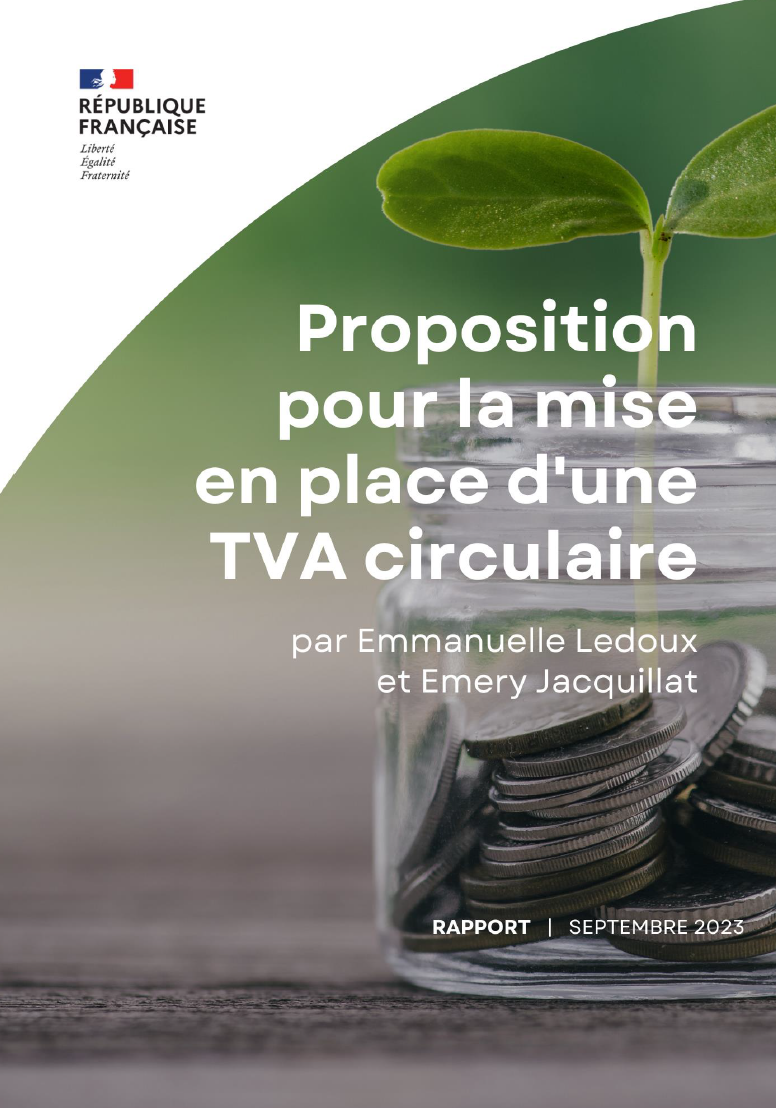A new study for the European Commission investigates civil society’s role in improving the effectiveness of environmental taxes for pollution reduction and natural resource management. Forty new case studies reveal the role of stakeholders throughout the policy cycle and key design features for successful economic instruments.
[box type=”bio”]  Emma Watkins is a Senior Policy Analyst at the Institute for European Environmental Policy, focusing on circular economy, waste and related economic instruments. She has led studies on building civil society capacity on environmental tax reform (ETR), on economic instruments to improve waste management performance, on the socio-economic impacts of marine litter and on greening taxes and subsidies in the Pacific islands. She has previously contributed to studies on ETR for the European Commission and the Dutch and Swiss Governments.[/box]
Emma Watkins is a Senior Policy Analyst at the Institute for European Environmental Policy, focusing on circular economy, waste and related economic instruments. She has led studies on building civil society capacity on environmental tax reform (ETR), on economic instruments to improve waste management performance, on the socio-economic impacts of marine litter and on greening taxes and subsidies in the Pacific islands. She has previously contributed to studies on ETR for the European Commission and the Dutch and Swiss Governments.[/box]

 Civil society can help make the case for the introduction of economic instruments by identifying the need for action. For example, the Hungarian NGO Clean Air Action Group kick-started discussions on an air pollution charge that was later adopted. Public and NGO pressure led to the introduction of the Austrian landfill tax, whilst academics, scientists and NGOs provided inspiration for ecological fiscal transfers in Portugal and biodiversity offsetting schemes in Germany.
Civil society can shape instrument design through engagement in stakeholder consultation processes. For example, the salmon fishing licence in Ireland was designed following meetings with 46 different agencies, organisations and individual stakeholders, leading to a perceived fair distribution of burdens amongst recreational and commercial fishers. Formal consultations on Swedish air pollution taxes, the Irish plastic bag levy and the Slovenian Forest Act helped ensure each instrument’s acceptability and effectiveness.
The case studies demonstrate that civil society can also support the implementation and evaluation of instruments. For example, Estonian fishermen are consulted each year on new fishing fees. An executive committee including a broad range of stakeholders is responsible for the implementation and enforcement of Dutch water pricing policy. Stakeholders have helped evaluate and revise the UK landfill tax, while a consultation board of environmental NGOs was responsible for assessing the effectiveness of the Latvian packaging tax.
Civil society can help make the case for the introduction of economic instruments by identifying the need for action. For example, the Hungarian NGO Clean Air Action Group kick-started discussions on an air pollution charge that was later adopted. Public and NGO pressure led to the introduction of the Austrian landfill tax, whilst academics, scientists and NGOs provided inspiration for ecological fiscal transfers in Portugal and biodiversity offsetting schemes in Germany.
Civil society can shape instrument design through engagement in stakeholder consultation processes. For example, the salmon fishing licence in Ireland was designed following meetings with 46 different agencies, organisations and individual stakeholders, leading to a perceived fair distribution of burdens amongst recreational and commercial fishers. Formal consultations on Swedish air pollution taxes, the Irish plastic bag levy and the Slovenian Forest Act helped ensure each instrument’s acceptability and effectiveness.
The case studies demonstrate that civil society can also support the implementation and evaluation of instruments. For example, Estonian fishermen are consulted each year on new fishing fees. An executive committee including a broad range of stakeholders is responsible for the implementation and enforcement of Dutch water pricing policy. Stakeholders have helped evaluate and revise the UK landfill tax, while a consultation board of environmental NGOs was responsible for assessing the effectiveness of the Latvian packaging tax.
 Emma Watkins is a Senior Policy Analyst at the Institute for European Environmental Policy, focusing on circular economy, waste and related economic instruments. She has led studies on building civil society capacity on environmental tax reform (ETR), on economic instruments to improve waste management performance, on the socio-economic impacts of marine litter and on greening taxes and subsidies in the Pacific islands. She has previously contributed to studies on ETR for the European Commission and the Dutch and Swiss Governments.[/box]
Emma Watkins is a Senior Policy Analyst at the Institute for European Environmental Policy, focusing on circular economy, waste and related economic instruments. She has led studies on building civil society capacity on environmental tax reform (ETR), on economic instruments to improve waste management performance, on the socio-economic impacts of marine litter and on greening taxes and subsidies in the Pacific islands. She has previously contributed to studies on ETR for the European Commission and the Dutch and Swiss Governments.[/box]
The potential for environmental tax reform
Environmental taxes are considered an important part of the policy mix to support the transition to an inclusive green economy and are attracting increasing attention. For example, the European Union (EU) has called for further action on environmental tax and subsidy reform in several country-specific recommendations under the European Semester, and in broader policy discussions. The EU Flagship Initiative for a Resource-Efficient Europe calls for environmental taxes to account for 10% of total tax and social contribution revenues by 2020 – a substantial increase from the average of 6.3% in 2015 in the 28 EU Member States (EU-28). Although many EU countries already have environmental taxes, charges and levies (notably related to fuel, emissions, products and materials), scope remains in both environmental and fiscal terms for wider and more effective application, particularly in the areas of pollution reduction and natural resource management. For example, a 2016 study for the European Commission estimated that further shifting taxes from labour to pollution in the EU-28 could generate around EUR 100 billion in 2018 and EUR 208 billion in 2030 (around 0.7 and 1.5% of EU-28 GDP at 2014 prices).Major new study to build capacity on environmental tax and budgetary reform
To encourage further use of economic instruments in the EU, a new study for the European Commission undertaken by the Institute for European Environmental Policy and partners seeks to build civil society capacity on environmental taxation and budgetary reform. Through detailed case studies on 40 instruments across the EU-28 (see Table 1) and a series of workshops, the study has identified the roles that civil society can play during the policy cycle. In addition, the study has identified a number of design features for successful instruments. Table 1: Cases examined in the study
The role of civil society
The study took a fairly broad definition of civil society, including bodies that explicitly represent citizens’ interests (e.g. membership NGOs) and those that do so indirectly (e.g. other green NGOs, think tanks and academia). Civil society organisations can – and do – play key roles in environmental tax reform, all the way from the initial stages of problem identification and policy formulation, through decision-making and policy implementation, to monitoring and evaluation (see Figure 1). Figure 1: Examples of civil society engagement throughout the policy cycle Civil society can help make the case for the introduction of economic instruments by identifying the need for action. For example, the Hungarian NGO Clean Air Action Group kick-started discussions on an air pollution charge that was later adopted. Public and NGO pressure led to the introduction of the Austrian landfill tax, whilst academics, scientists and NGOs provided inspiration for ecological fiscal transfers in Portugal and biodiversity offsetting schemes in Germany.
Civil society can shape instrument design through engagement in stakeholder consultation processes. For example, the salmon fishing licence in Ireland was designed following meetings with 46 different agencies, organisations and individual stakeholders, leading to a perceived fair distribution of burdens amongst recreational and commercial fishers. Formal consultations on Swedish air pollution taxes, the Irish plastic bag levy and the Slovenian Forest Act helped ensure each instrument’s acceptability and effectiveness.
The case studies demonstrate that civil society can also support the implementation and evaluation of instruments. For example, Estonian fishermen are consulted each year on new fishing fees. An executive committee including a broad range of stakeholders is responsible for the implementation and enforcement of Dutch water pricing policy. Stakeholders have helped evaluate and revise the UK landfill tax, while a consultation board of environmental NGOs was responsible for assessing the effectiveness of the Latvian packaging tax.
Civil society can help make the case for the introduction of economic instruments by identifying the need for action. For example, the Hungarian NGO Clean Air Action Group kick-started discussions on an air pollution charge that was later adopted. Public and NGO pressure led to the introduction of the Austrian landfill tax, whilst academics, scientists and NGOs provided inspiration for ecological fiscal transfers in Portugal and biodiversity offsetting schemes in Germany.
Civil society can shape instrument design through engagement in stakeholder consultation processes. For example, the salmon fishing licence in Ireland was designed following meetings with 46 different agencies, organisations and individual stakeholders, leading to a perceived fair distribution of burdens amongst recreational and commercial fishers. Formal consultations on Swedish air pollution taxes, the Irish plastic bag levy and the Slovenian Forest Act helped ensure each instrument’s acceptability and effectiveness.
The case studies demonstrate that civil society can also support the implementation and evaluation of instruments. For example, Estonian fishermen are consulted each year on new fishing fees. An executive committee including a broad range of stakeholders is responsible for the implementation and enforcement of Dutch water pricing policy. Stakeholders have helped evaluate and revise the UK landfill tax, while a consultation board of environmental NGOs was responsible for assessing the effectiveness of the Latvian packaging tax.






